2020.01.06
-
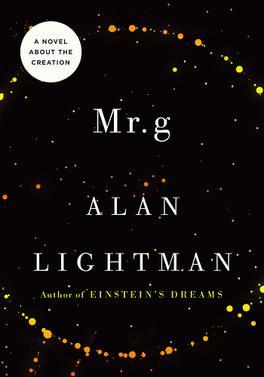 Mr g: A Novel About the Creation, Alan Lightman. The author of "Einstein's Dreams" returns with this beautiful, sparse short novel that does an amazing job of creating a beautiful creation myth that can be reconciled with both science and morality as we understand it: yes, the god presented in it loves his creation (one try of many of the universes he experimented in making, advised by his Aunt Penelope and Uncle Deva and their tie-ins with science and religion) but because of chaos and complexity, despite his omnipotence even He won't know how it turns out until the experiment is run.
Mr g: A Novel About the Creation, Alan Lightman. The author of "Einstein's Dreams" returns with this beautiful, sparse short novel that does an amazing job of creating a beautiful creation myth that can be reconciled with both science and morality as we understand it: yes, the god presented in it loves his creation (one try of many of the universes he experimented in making, advised by his Aunt Penelope and Uncle Deva and their tie-ins with science and religion) but because of chaos and complexity, despite his omnipotence even He won't know how it turns out until the experiment is run.
-
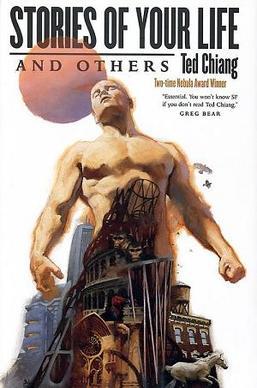 Stories of Your Life and Others, Ted Chiang. One my top three favorite sci-fi authors, easily. I read this collection's "Tower of Babylon" in 1990 and it stuck with me since - his signature is to take an outlandish fiction (the Tower of Babylon, human developmental biology as seen by the Victorians, the works of Vonnegut) and richly develop them as the truths they would make, coloring in the sketches of the concepts and making them hefty and real.
Stories of Your Life and Others, Ted Chiang. One my top three favorite sci-fi authors, easily. I read this collection's "Tower of Babylon" in 1990 and it stuck with me since - his signature is to take an outlandish fiction (the Tower of Babylon, human developmental biology as seen by the Victorians, the works of Vonnegut) and richly develop them as the truths they would make, coloring in the sketches of the concepts and making them hefty and real.
-
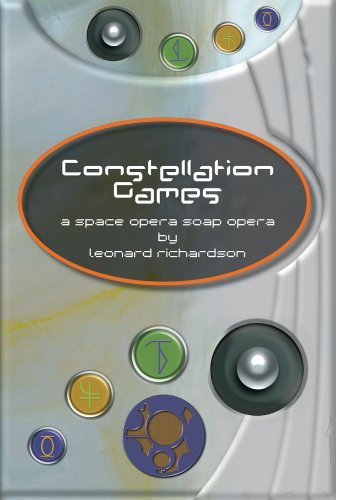 Constellation Games, Leonard Richardson - disclaimer, I acted as kind of a consultant on retro video games for my friend Leonard on this one - but every since, I am legitimately heartbroken that that campy, Marty-Stu-author-self-insertion, 80's-Slather-Bath "Ready Player One" got tons of accolades and made into a huge movie while this one just puttered along - the story of an alien first contact as seen through a burnt-out game developer and blogger who decides to explore the history of this federation by trying the video games they were making when they were at roughly our Nintendo Entertainment System level of technological development - a space that Leonard brilliantly fleshes out as alien and weird while being familiar enough to be comprehensible.
Constellation Games, Leonard Richardson - disclaimer, I acted as kind of a consultant on retro video games for my friend Leonard on this one - but every since, I am legitimately heartbroken that that campy, Marty-Stu-author-self-insertion, 80's-Slather-Bath "Ready Player One" got tons of accolades and made into a huge movie while this one just puttered along - the story of an alien first contact as seen through a burnt-out game developer and blogger who decides to explore the history of this federation by trying the video games they were making when they were at roughly our Nintendo Entertainment System level of technological development - a space that Leonard brilliantly fleshes out as alien and weird while being familiar enough to be comprehensible.
-
 A Guide To The Good Life. {the ancient art of stoic joy}, William B. Irvine. I read this earlier in the decade, and it was the first book about the various philosophies designed to get people to a state of ataraxia - a state of lucid equanimity and imperturbability.
A Guide To The Good Life. {the ancient art of stoic joy}, William B. Irvine. I read this earlier in the decade, and it was the first book about the various philosophies designed to get people to a state of ataraxia - a state of lucid equanimity and imperturbability.
-
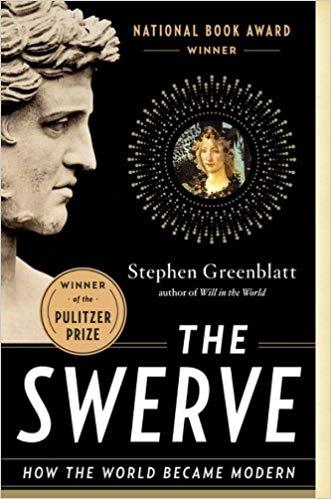 The Swerve: How the World Became Modern, Stephen Greenblatt. Ostensibly an introduction to the earliest of atomic theories, it also served to open my eyes to the possibilities of Epicureanism - not gastronomic or otherwise sensual self-indulgence, but a wiser path of satisfaction and contentment to pick through this existentially open world, and another way to ataraxia.
The Swerve: How the World Became Modern, Stephen Greenblatt. Ostensibly an introduction to the earliest of atomic theories, it also served to open my eyes to the possibilities of Epicureanism - not gastronomic or otherwise sensual self-indulgence, but a wiser path of satisfaction and contentment to pick through this existentially open world, and another way to ataraxia.
-
.jpg) When Nietzsche Wept: A Novel Of Obsession, Irvin D. Yalom. Suggested by my therapist. Obviously Nietzsche sometimes presents ideas that are either wrong or horribly misused, but I am grateful that he set me to thinking in terms of "Tempus Fugit", not just putting up with the fate we find ourselves in but loving it, because there is no other, despite our ability to make ourselves miserable imagining "like the current condition but a bit better please". This book posits an early practitioner of psychotherapy trying to help the genius as he worked through his griefs and also his debilitating migraines.
When Nietzsche Wept: A Novel Of Obsession, Irvin D. Yalom. Suggested by my therapist. Obviously Nietzsche sometimes presents ideas that are either wrong or horribly misused, but I am grateful that he set me to thinking in terms of "Tempus Fugit", not just putting up with the fate we find ourselves in but loving it, because there is no other, despite our ability to make ourselves miserable imagining "like the current condition but a bit better please". This book posits an early practitioner of psychotherapy trying to help the genius as he worked through his griefs and also his debilitating migraines.
-
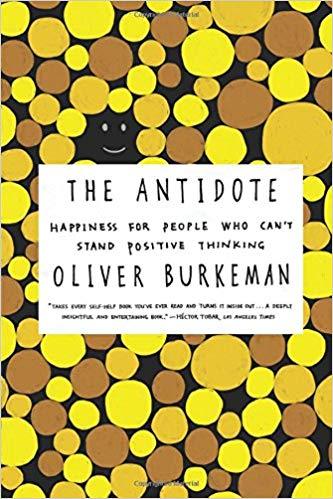 The Antidote: Happiness for People Who Can't Stand Positive Thinking, Oliver Burkeman - not a five star read by itself but it covered so many other topic ( Irvine stoic, Ellis rationality, Dennett's view of consciousness.... Dweck fixed mindset, mortality in general...) that maybe it could have saved me some time.
The Antidote: Happiness for People Who Can't Stand Positive Thinking, Oliver Burkeman - not a five star read by itself but it covered so many other topic ( Irvine stoic, Ellis rationality, Dennett's view of consciousness.... Dweck fixed mindset, mortality in general...) that maybe it could have saved me some time.
-
_1st_ed_cover.jpg) Fear of Flying, Erica Jong-- so relatable, and so distant in terms of time and culture. i just enjoyed reading it (during a vacation in Malaysia) in a way i hadn't enjoyed reading things in a while.
Fear of Flying, Erica Jong-- so relatable, and so distant in terms of time and culture. i just enjoyed reading it (during a vacation in Malaysia) in a way i hadn't enjoyed reading things in a while.
-
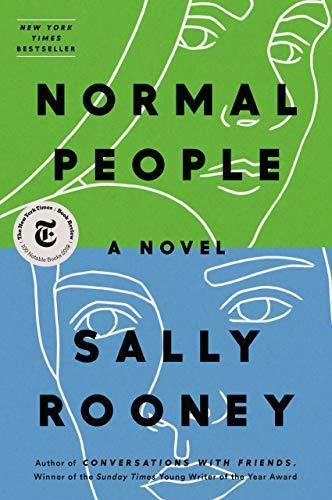 Normal People, Sally Rooney. A brisk read by a young Irish author, the first time I read it its story of a difficult on-again off-again romance among some young intelligentsia just resonated so deeply with me, with things I'd been a part of or wanted to have been a part of.
Normal People, Sally Rooney. A brisk read by a young Irish author, the first time I read it its story of a difficult on-again off-again romance among some young intelligentsia just resonated so deeply with me, with things I'd been a part of or wanted to have been a part of.
-
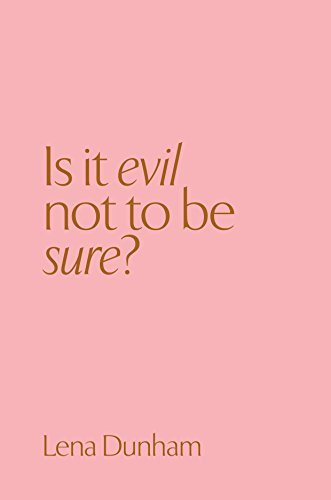 Is it evil not to be sure?, Lena Dunham. Like I wrote at the time (drawing many great little quotes from it) I'm really fond of this genre... young and precocious and observant, mostly in the present tense, and usually romantically longing, so often written to an absent "you".
Is it evil not to be sure?, Lena Dunham. Like I wrote at the time (drawing many great little quotes from it) I'm really fond of this genre... young and precocious and observant, mostly in the present tense, and usually romantically longing, so often written to an absent "you".
Other good reads
(in roughly chronological order)
First Half of Decade:
Julian Barnes' Nothing to Be Frightened Of might have snuck in between decades almost - really thoughtful musings on mortality. The Last Policeman - awesome classic noir in a just-per-apocalyptic setting. 10 PRINT CHR$(205.5+RND(1)); : GOTO 10 was covering a tiny computer program from very many angles. Art Spiegelman's MetaMaus is great for anyone who wants an inside look in the craft of comics. David Byrne's How Music Work introduced me to many ideas including how musical forms tend to be shaped by their acoustic environments, the dance hall vs the drawing room. The Advanced Genius Theory gave such a good reason to enjoy things Advancedly not scorn them Overtly... The Spell of the Sensuous explores what we lost when we took on the phonetic alphabet, and how indigenous people weave their environment into their stories. I loved the multitude of styles in the scoff book Cloud Atlas - the movie was decent too, if a bit weirdly "yellowface".
Second Half of the Decade:
Set This House in Order: A Romance of Souls was a fascinating psychological study - won't give away spoilers here. Axiomaticwas more sci-fi short stories: I've loved Egan's work ever since "Permutation City", explorations and extrapolations on quantum physics and consciousness and biotech. Bull Was a great sympathetic retelling of the story of the minotaur. Priestdaddy - I could resonate with the tale of being a preacher's kid, albeit not a catholic (!) one, by poet Patricia Lockwood. The Orange Girl - this book has an odd number of parallels with my life, from the late-revealed name of the titular character ("Veronika"), to a boy coping with the early death of his father, to a tendency to write letters for future reading of young people... Time's Arrow was a homonculus who rides along witnessing a Nazi doctor's life but played in reverse.... Love and Limerence taught me a lot about "infatuated love" and maybe not to sweat not feeling it so often, that it might just be a personality-based likelihood...
According to reports assassinating Soleimani was presented as the obviously too extreme throw-away option to make the other options look reasonable. Note to Pentagon officials: do NOT put in a "throw-away option" of using nukes, please.
And drones, man. Remember that Mirror, Mirror episode of Star Trek, where the evil universe Captain Kirk had a viewscreen in his quarters that could just make anyone it displayed stop existing? Drones are kind of like that, a tool that Obama started using (most infamously to kill a 16 year old US Citizen) and now it's in the hands of Trump.
